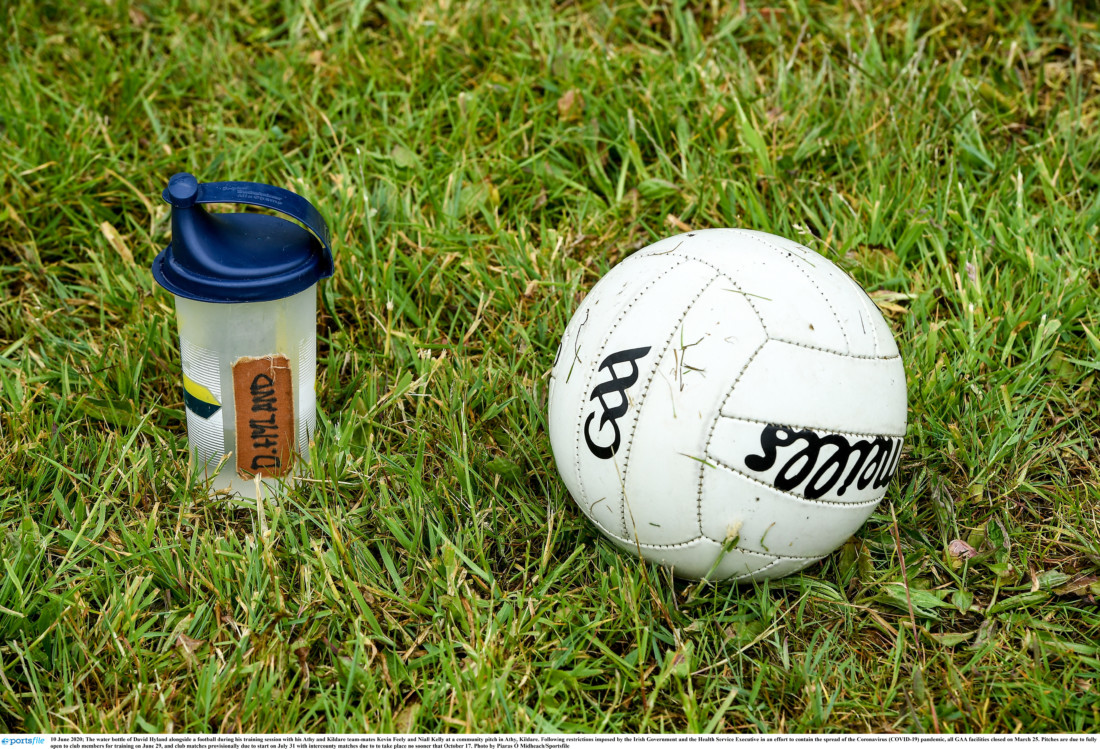HAVE you been one of the unlucky people to have contracted Covid-19?
You may be wondering how or when can you return to training and get back to your best on the pitch.
Especially if you have been unfortunate to have experienced symptoms of shortness of breath, a cough, fever or fatigue.
Considerations For Players
• When should I start training again?
• What type of training should I be doing?
• How long is it going to take to get back to full training?
Monitoring Your Symptoms During Return To Play
To help guide you through the return to play guidelines, you or your healthcare professional should use some form of measurement at each stage:
• Heart rate monitor – most fitness watches have these installed. Use it to measure your resting heart rate before a session and maximum heart rate during a session.
• Rate of perceived exertion (RPE) scale – alternatively, if you do not have access to a heart rate monitor, you can use a RPE scale (Scherr et al., 2013). You rate the difficulty of the session from one to 10. For example, stages three to four of the return to play guideline states your heart rate should be less than 80 per cent of your maximum. On the RPE scale, this correlates to seven out of 10, meaning you should not reach the intensity of ‘talking is an effort’ during exercise.
• Injury – Psychological Readiness To Return To Sport (I-PRRS) questionnaire – a six-item scale of rating your confidence about returning to play. This can be completed after each stage.
Return to Play Guidelines
Recently, a group of Sports Medicine professionals published a Graduated Return To Play Guidance Following Covid-19 Infection (Elliott et al., 2020).
It is a clear six-stage programme that gradually allows your body to increase activity and intensity. At the same time, monitoring your response to each session.
It is important to note that it is advisable that you follow the programme under the guidance of a health care professional so that they can monitor you at each stage.
Where To Start – Stage 1
This is the rest period from when your symptoms first started.
This should last for at least 10 days, which is the current self-isolation period as advised by the Public Health Agency.
If you have rested for 10 days and are free from symptoms for at least seven days, you can then begin some light activity at stage two.
Stage Two
Light activity such as walking, light jogging or cycling can begin for a period of up to 15 minutes only.
This should be repeated for two days.
Intensity should not exceed 70 percent heart rate maximum or five out of 10 on a RPE scale – ‘talking is easy during exercise’.
Stage 3A
Start running drills on the pitch for no more than 30 minutes.
If you use a heart rate monitor, do not allow your heart rate maximum to go beyond 80 percent maximum.
This equates to less than seven out of 10 on the RPE scale – ‘talking is an effort’.
Stage 3B
Similar to the previous stage but the session can last up to 45 minutes.
Stage Four
Return to normal training but for no more than 60 minutes, with an intensity of less than 80 percent heart rate maximum or seven out of 10 on a RPE scale.
Stage 4 lasts for two days.
Stage Five
Normal training session with no limits to intensity or length of time.
The earliest a player can get to this stage with no adverse reaction is 17 days following onset of symptoms.
Stage Six
Return to competitive sport.
What happens If I struggle with one of the stages?
Under the guidance of a healthcare professional, you will go back to repeat the previous stage.
If your symptoms clear, then try to move forward onto the next stage again.
What to do now
You should now have a clear idea of where to start and how to get back to full training after a diagnosis of Covid-19.
Use the Graduated Return To Play Guidance Following Covid-19 Infection.
Don’t be afraid to take your time through the stages, this is a guideline so you can go at your own pace.
If you know someone who might benefit from this article, please share it with them.
Hopefully it will not be long until everyone is back training as a team and playing matches.
Are you frustrated with injury? Jonny Kelly is a chartered Sports Physiotherapist and owns Physio Performance in Belfast. He has helped get world-class athletes back on the pitch and performing at their best. Contact us for a complimentary Get Back On The Pitch Quick consultation at www.physioperformance.co.uk.
Receive quality journalism wherever you are, on any device. Keep up to date from the comfort of your own home with a digital subscription.
Any time | Any place | Anywhere












